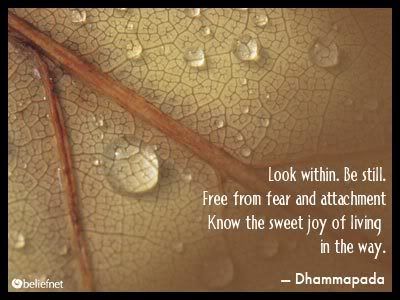Lately I've read several books involving Buddhism. One of the primary teachings of the Buddha is that attachment causes suffering. This was exemplified for me this morning by a dream. In it the roof of the house I lived in caught fire. After a brief effort by firefighters, the neighboring house caught fire and became the focus of their attention. We risked entering the first floor of our house to retrieve the kids' possessions, but the second floor, where my things were, was already lost. When questioned about what was up there, I could only remember a couple things, yet my feeling of loss was extreme. For the remainder of the dream, I had intermittent crying spells, and a few tears even crossed over into waking life. For ages past the fear of loss was merely related to physical things. We were saddened by the death of a loved one or the breaking of a treasured memento. Now, however, a whole new breed of attachment has been born-- attachment to non-physical, digital media. Steve Jobs understands this. This was initially demonstrated by his comments on subscription music services, and then again by recent Apple product innovations.
For ages past the fear of loss was merely related to physical things. We were saddened by the death of a loved one or the breaking of a treasured memento. Now, however, a whole new breed of attachment has been born-- attachment to non-physical, digital media. Steve Jobs understands this. This was initially demonstrated by his comments on subscription music services, and then again by recent Apple product innovations.
Jobs has repeatedly declared that people want to own their music. It has been the rationale given for the iTunes Music Store eschewing any type of subscription download service. From a marketing perspective this choice was right on. The subscription-based music stores have all stuttered or folded, and Apple now controls 85% of the legal download market and is the number one music retailer in the world. That belief has also led Jobs to publicly call for music files free of Digital Rights Management (DRM) software, which makes it harder to use legal music when and where a person wants.
Along with ownership comes attachment. Apple has responded to this fear of loss in several software and hardware offerings. People can assuage their fears by making backups to other media or across the internet.
Probably the first such offering was the Dot Mac subscription service. For between $69 and $99 per year, a user gets a storage area on Apple's servers (called an iDisk), in addition to several other services. Many applications now include quick and easy back up to iDisk. In addition to Apple's own Backup utility, which will copy photos, purchased music, and other selected files, users can also store their book and CD collections on iDisk via Delicious Library, back up their taxes from Turbo Tax, and more. This service is an easy way to create off-site back ups of important digital documents.
A noted feature of the most recent release of OS X, Leopard, is the program called Time Machine. It is basically just a backup utility, but its innovations are that it runs automatically with little user intervention, and it provides a novel interface making restoration from backups simple and easy. The stated goal was to increase the number of people who actually back up their data. In conjunction with Time Machine is a hardware offering called Time Capsule. It is a wireless router (aka Airport Base Station) with a built in hard drive for seamless backups for an entire home network with little user intervention. These innovations are obviously geared toward ensuring that more people are more comfortable with the digital world where music, movies, and memories only exist as pips on a disk.
In conjunction with Time Machine is a hardware offering called Time Capsule. It is a wireless router (aka Airport Base Station) with a built in hard drive for seamless backups for an entire home network with little user intervention. These innovations are obviously geared toward ensuring that more people are more comfortable with the digital world where music, movies, and memories only exist as pips on a disk.
If you imagine losing all of your digital photos and MP3 or AAC music, it may bring a tear to your eye. I for one have not become enlightened enough to release my attachment to these modern age materials. Which reminds me, I haven't made any backups for quite a while. Better go do that.
Wednesday, April 23, 2008
Attachment in the Digital Age
Labels: Apple, psychology
Subscribe to:
Post Comments (Atom)
No comments:
Post a Comment